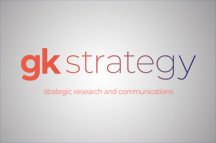As the UK’s exit from Europe continues to consume the country, reactions across the EU have ranged from exasperation to indifference. Politically, EU leaders have remained largely united, particularly on the indivisibility of the four freedoms that characterise the single market. Economically, despite varying dependence on the UK, member states have generally been happy to follow the lead of France and Germany on these issues. This is typical, as both France and Germany usually have dominant roles on EU matters. But how does reporting of recent Brexit developments in four key European neighbours suggest they are perceiving Brexit?
France’s Brexit Perceptions
Emmanuel Macron is a passionate Europhile. His drive to reform and strengthen the Eurozone frames his position on Brexit, which is tougher than the German stance. Macron is invested in a strong EU, and so has not been Theresa May’s first port of call when searching for concessions. The EU played a central role in France’s presidential elections last year as Macron beat the Eurosceptic Marine Le Pen. However upcoming EU elections may change these dynamics.
However, recently, French newspapers have been preoccupied with their own national crisis, in the form of the gilets jaunes protests against rising fuel and living costs. That is not to say that Brexit has not been covered. After May’s confidence vote, Le Monde discounted the possibility of “no deal”. It stated: “If no majority can be found on the agreement negotiated by London, even if amended by the EU, the only outcome would be a second referendum”.
How Germany is Reacting
German government figures tend to echo their French counterparts on Brexit. However, Berlin based thinktank chief, Dr Nicolai von Ondarza suggests their tone is “more polite”. Merkel has been typically cautious and controlled throughout the process, making the German position clear in a patient, consistent manner.
Polling suggests that Germans generally see Brexit as less of a ‘major’ problem than other populations in Europe. For example, in April 2018, Germans saw the presidency of Donald Trump, the crises in the Middle East, the nuclear situation in Korea, and Russian-European relations as greater threats than Brexit.
Italy’s Interpretations
Italian politics has changed significantly over the past decade, leading to the current government formed by two Eurosceptic parties. On the day of the referendum, current Deputy Prime Minister, Matteo Salvini tweeted his support for Brexit: “Hooray for the courage of free citizens!!!. Heart, head and pride beat lies, threats and blackmail. Thank you UK. Now Europe will finally change. Now it is our turn.”
Brexit has not been as prominent in Italian newspapers as in other countries, with recent turbulence in domestic politics commanding headlines. Large parts of the Eurosceptic demographic are supportive of Brexit and have criticised Brussels’ handling on negotiations.
Thoughts from The Netherlands
The Netherlands and Britain are natural bedfellows in Europe, with strong trading links and historically a similar liberal political outlook. It was no coincidence that Theresa May chose The Hague as her first stop on her European tour following her decision to delay the vote on her deal, with Dutch PM Mark Rutte often expressing his support and understanding. In the build up to Christmas, however, the Prime Minister stuck a different chord. Rutte published an open letter in the Algemeen Dagblad, comparing his country to a “fragile vase” that could be broken by the same forces that led to the “Brexit chaos”.
This whistle-stop tour through Europe demonstrates that Brexit rhetoric does differ across Europe. However most of all it highlights that many of our neighbours have other issues on their minds. Of the four countries, it seems that leaders in France, Italy and the Netherlands are using Brexit to make domestic points, while Germans are more interested in other geopolitical challenges.
by Joe Berkhout














